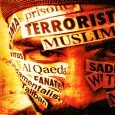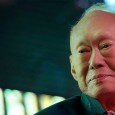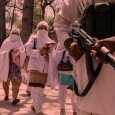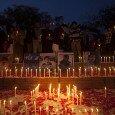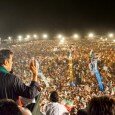By Kamila Hyat –
There are many things to be sorted out in our country; questions almost all of us need to think about at some level and find answers to.
Are the Taliban good or bad? What about the ‘mujahideen’? How can the Taliban be ‘bad’ when they are locked in a struggle against the US? What about persons like Hafiz Muhammad Saeed? Doesn’t his organization do a great deal of good work? Shouldn’t Balochi nationalists be condemned as traitors? They do blow up gas pipelines and kill people, don’t they? And why did Malala Yousafzai win the Nobel Peace Prize anyway? What has she done to deserve it?
The questions become more and more complex, and it is not always easy to find answers. The years we have seen of very poor leadership and totally inept governance add to the muddle. One can hardly blame people for being uncertain, mixed up about so much and locked in an almost constant struggle to find clarity. All of us, to one degree or the other, find ourselves caught up in these questions. In many cases things are not black and white. They come in many different shades, and choosing what is right, what wrong, is no simple matter in the country we live in today.
It has changed rapidly, making it even harder to choose, even harder to decide. The fact that around us so many things have changed so rapidly really means we live in a country quite different to the one that existed even a generation ago. This makes it all that much harder to keep thoughts together and to determine where we stand as the world moves at a dizzying pace around us. It is sometimes hard to find footage on that moving piece of ground on which we stand.
But yet, at the same time, there is a distinct need for clarity. We must know what direction we are setting out on, or we will simply end up running around in circles and getting nowhere at all. In so many ways that is what seems to be happening now. We need to set up the tools needed to navigate with, and for this to happen we must know our destination. What kind of country do we want in the future? What should it look like in terms of its social and ideological structure? And do we have room within it for all the different groups of people who live here? Certainly right now we seem hell bent on killing them off as rapidly as possible on the basis of their belief, their ethnicity or their political affiliations. No nation can continue on this basis and hope to survive.
We badly need clarity. There cannot be ‘good’ and ‘bad’ militants. As a principle we need to be clear what kind of nation we seek for the future. If it is to be a modern, progressive, country; a country not ostracized by the rest of the world as a State which protects terrorists and one where much has gone wrong, with people from other lands scared to visit it, then a lot has to change. We need to work towards bringing that change about. The time we have is limited, and the way things stand now cannot be permitted to continue much longer.
The killings, the mayhem and the hatred has already come close to destroying us. It spreads out even from within prison walls, with Mumtaz Qadri, the man held at Adiala Jail for the 2011 murder of Salman Taseer, then the Governor of the Punjab, having been able to incite a guard to attack a 70-year-old British national, held at the same jail. The victim, Muhammad Asghar is known to suffer severe mental sickness.
The cupboard needs to be cleared up; confusion swept away. We need to understand that all groups preaching violence need to be dealt with – whether they are primarily motivated by a desire for power, by sectarian hatred or by jihadist zeal. All these strands eventually blend together in one way or the other. The ‘mujahideen’ do not help us keep India under check. They simply make it more difficult to establish the peace with our largest neighbor that is so essential to the future of the region.
Groups engaged in charitable work, with an extremist undercurrent running through them are perhaps especially dangerous. Yes, they serve people; yes, they are organized and yes they have in the past acted with admirable efficiency in emergency situations. But this does not alter the fact that they also promote extremist ideas; ideas which make our society a more dangerous place. To a large extent it is the multiple failures of our State that have allowed these groups to assume so much power. The State must resume the role assigned to it to diminish this and also help remove the confusion that runs through society.
![]() The writer is the prominent columnist and former editor The News
The writer is the prominent columnist and former editor The News






















































































